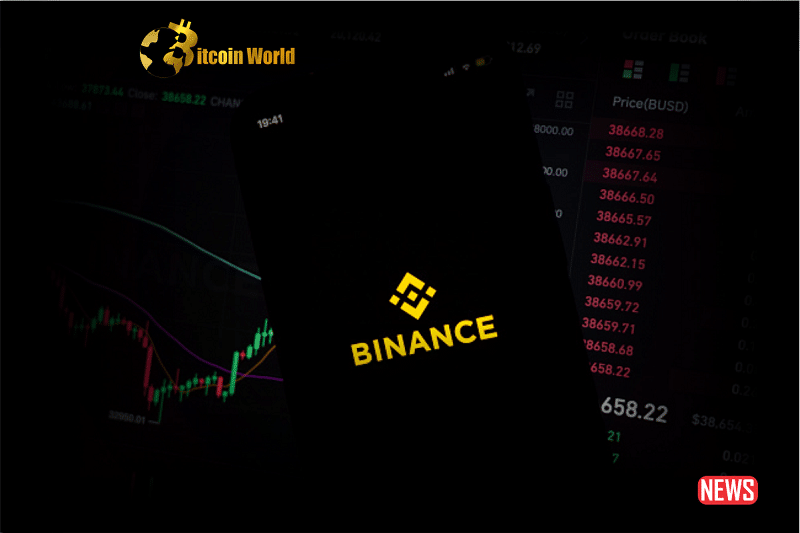The crypto world never sleeps, and just when you thought things were settling, another significant development shakes things up. London-based payment giant Checkout.com has decided to end its collaboration with Binance, the world’s leading cryptocurrency exchange. Why the sudden split? Compliance concerns are at the heart of this decision, raising eyebrows across the crypto landscape. Let’s dive into what this means.
Why Did Checkout.com Pull the Plug?
According to a Forbes report, Checkout.com’s CEO, Guillaume Pousaz, communicated the decision to Binance in letters dated August 9th and 11th. The core issue? Growing worries about money laundering and overall compliance. The second letter explicitly highlighted Checkout.com’s concerns regarding Binance’s anti-money laundering (AML) efforts, sanctions protocols, and general compliance controls. The partnership officially concluded on August 17th.
Think of it like this: Checkout.com, a major player in processing online payments, essentially decided that the potential risks associated with Binance’s compliance practices outweighed the benefits of their partnership. This isn’t just a minor disagreement; it’s a significant move that underscores the increasing pressure on crypto firms to adhere to stringent regulatory standards.
Binance Under the Microscope: What’s the Bigger Picture?
This news comes on the heels of Binance’s decision to discontinue its Binance Connect service, a platform that Checkout.com previously supported. It seems like a series of challenges are piling up for the crypto giant. Remember PaySafe, the European payments provider? They also ended their partnership with Binance back in June. It paints a picture of mounting scrutiny and the challenges Binance faces in navigating the complex web of global regulations.
What Challenges is Binance Facing?
- Regulatory Investigations: Binance is currently facing investigations in various jurisdictions around the world.
- Loss of Payment Partners: The departure of Checkout.com and PaySafe limits Binance’s options for facilitating fiat-to-crypto transactions.
- Building Trust: These setbacks make it harder for Binance to build and maintain trust with regulators and traditional financial institutions.
Despite these hurdles, Binance remains optimistic. Spokesman Dewi Mustajab stated their commitment to building a robust compliance program and fostering better relationships with regulators and partners. He also downplayed the immediate impact of Checkout.com’s departure, stating it would have “no impact on our services.”
Is This Really Just a Minor Setback for Binance?
While Binance might be putting on a brave face, losing a partner like Checkout.com, which previously processed billions in transactions for the exchange, is undoubtedly a blow. Furthermore, the partnership was beneficial for Checkout.com, enhancing its standing as a leading European payment firm. The termination raises questions about the long-term implications for both companies.
Impact on Binance:
- Reputational Damage: Losing key partners due to compliance concerns can negatively impact Binance’s reputation.
- Operational Challenges: Finding alternative payment processors and adapting to stricter regulatory environments requires significant resources.
- Market Position: While still the largest exchange, these challenges could potentially affect Binance’s dominance in the long run.
Impact on Checkout.com:
- Loss of a Major Client: Binance was a significant source of revenue for Checkout.com.
- Strategic Shift: This move signals a clear prioritization of compliance over high-volume, potentially riskier partnerships.
- Industry Influence: Checkout.com’s decision could influence other payment processors and traditional financial institutions’ approach to crypto partnerships.
The Bigger Picture: Why Does This Matter for the Crypto Industry?
The parting of ways between Checkout.com and Binance is more than just a business divorce. It highlights a critical trend within the cryptocurrency industry: the growing importance of compliance and security. As the crypto space matures, regulators worldwide are increasing their scrutiny, demanding stricter adherence to anti-money laundering and other financial regulations.
This situation serves as a reminder that:
- Compliance is King: Crypto businesses must prioritize building robust compliance programs to operate sustainably.
- Reputation Matters: Partnerships with reputable financial institutions are crucial for legitimacy and growth.
- Regulation is Evolving: The regulatory landscape for crypto is constantly changing, requiring businesses to be adaptable and proactive.
What’s Next for Binance and Checkout.com?
Binance faces the challenge of rebuilding trust with regulators and finding alternative payment solutions. They need to demonstrate tangible progress in their compliance efforts to reassure potential partners and maintain their market leadership. Checkout.com, on the other hand, will need to navigate the financial implications of losing a major client while potentially attracting businesses that prioritize a strong compliance framework.
The crypto industry is at a crossroads. The separation of Binance and Checkout.com underscores the increasing pressure to legitimize the space and operate within established regulatory frameworks. It will be interesting to see how both companies adapt and what impact this development has on the future of crypto payments.
Ultimately, this situation highlights that while the promise of decentralized finance is compelling, navigating the complexities of traditional finance and regulatory oversight is becoming increasingly crucial for long-term success in the crypto world.
Disclaimer: The information provided is not trading advice, Bitcoinworld.co.in holds no liability for any investments made based on the information provided on this page. We strongly recommend independent research and/or consultation with a qualified professional before making any investment decisions.




